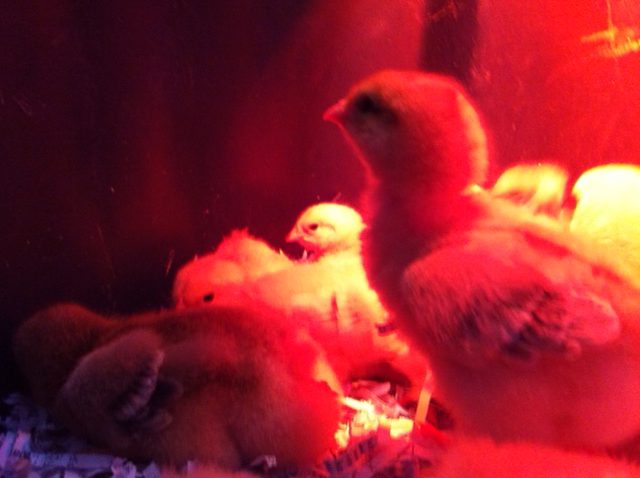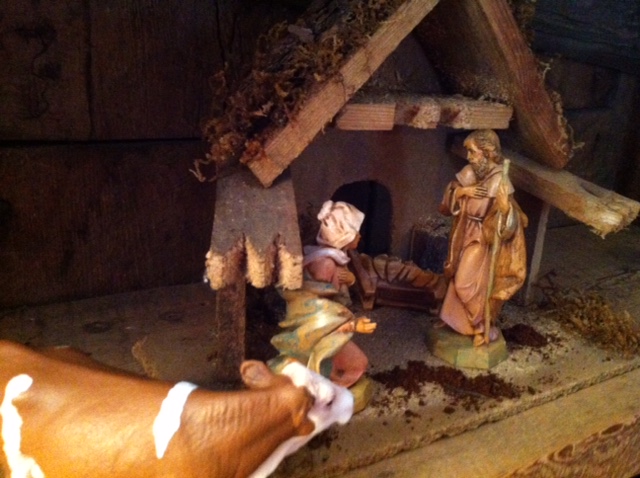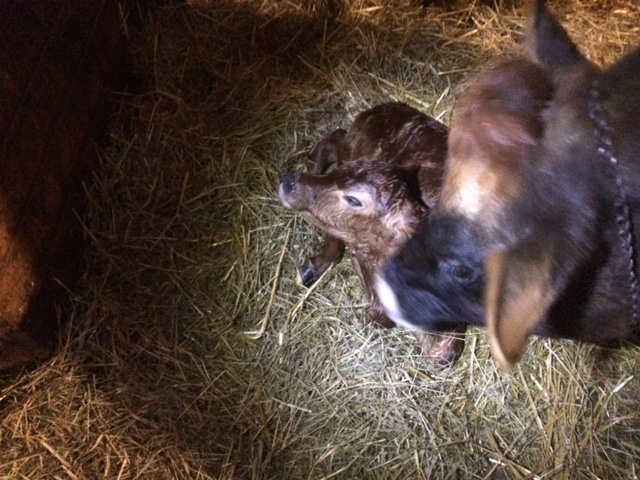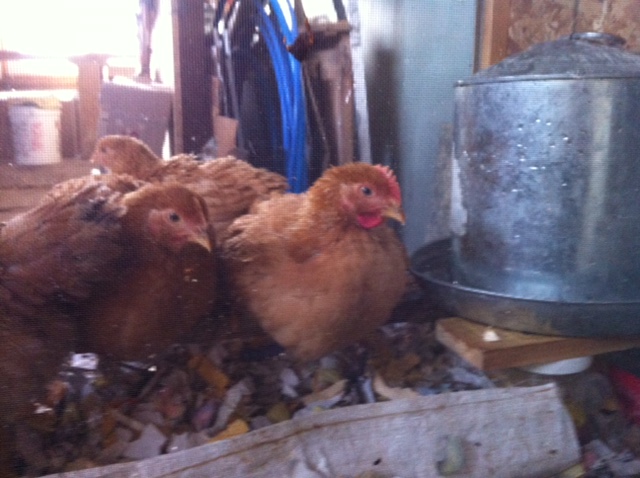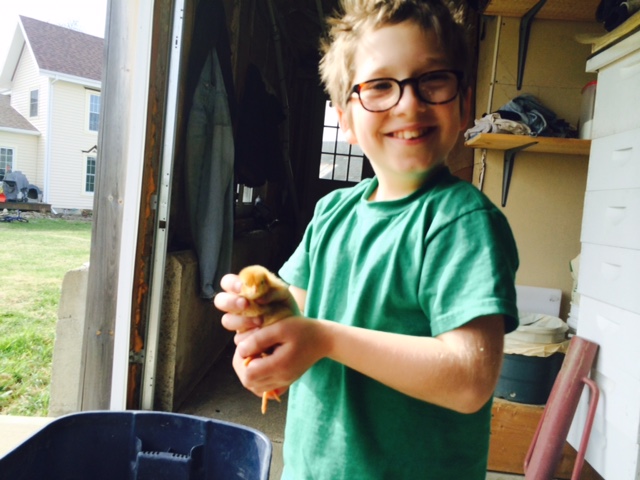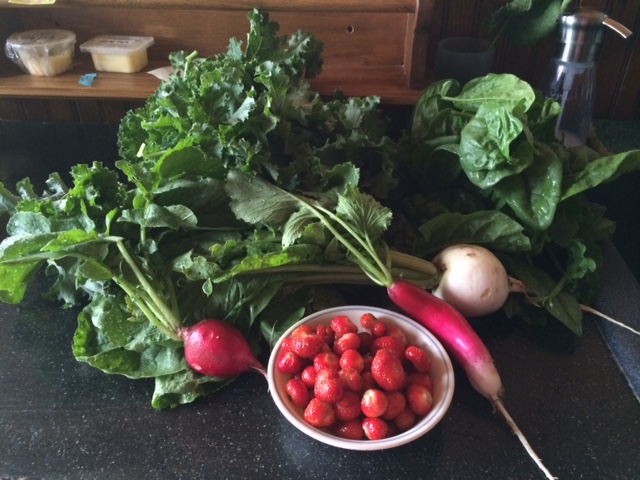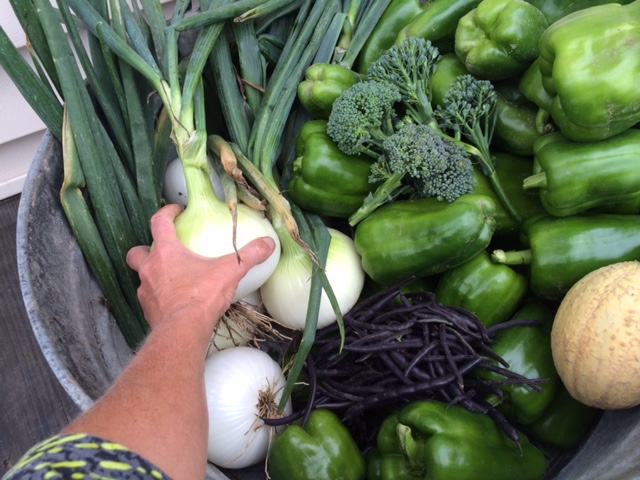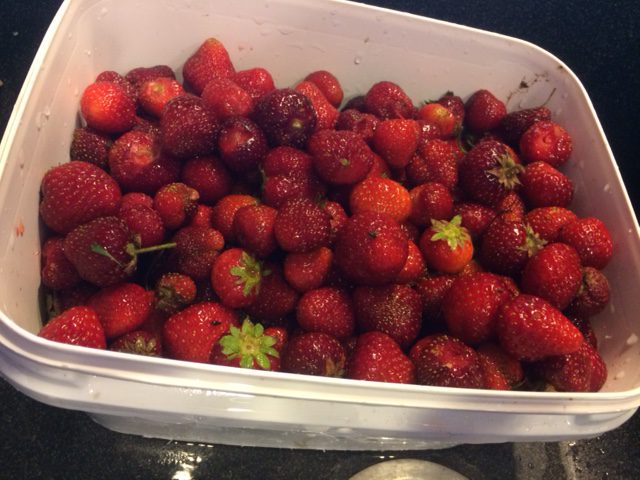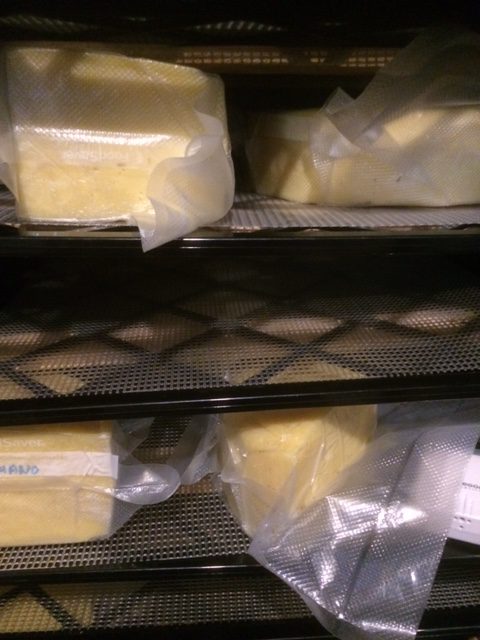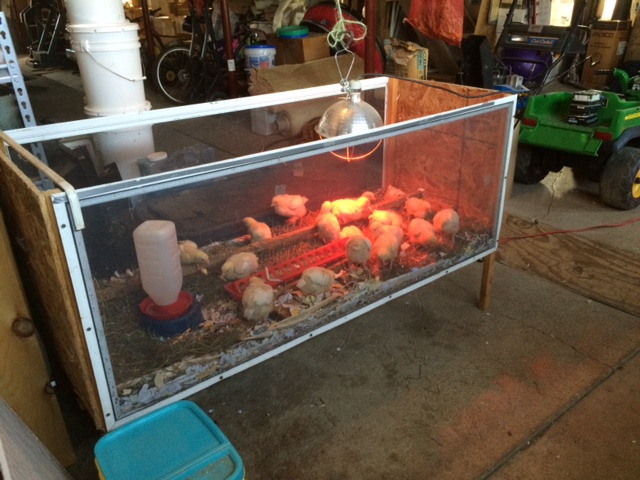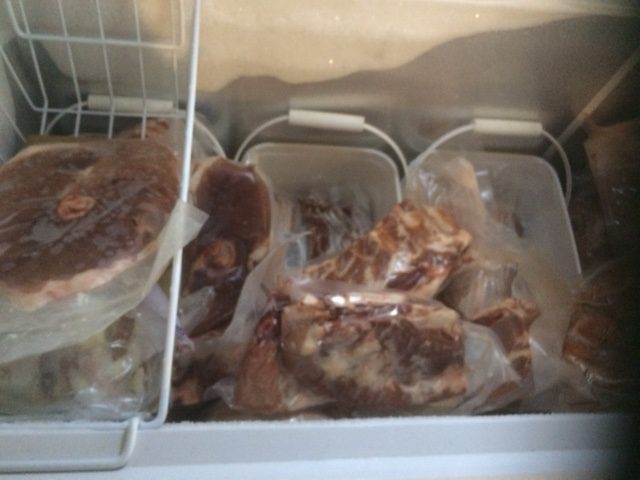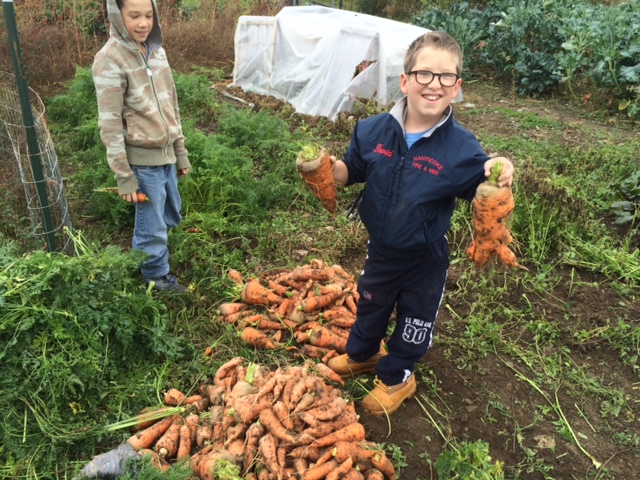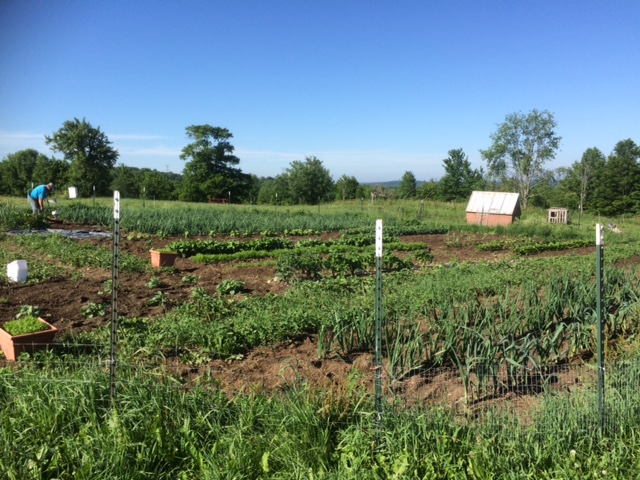Some of the challenges we faced in the early years of having a family cow involved cheese making. People innocently asked (and still ask) me in a pleasantly excited voice, “Oh! Have you made yogurt? That’s easy!” Yes. I had made yogurt … and cottage cheese, butter, cream cheese, ricotta, 30 minute mozzarella, but at 6 gallons a day I needed to face the HARD CHEESE! To me, “hard” encompassed both aspects of the word – hard, not soft, and hard, difficult.
When it really came down to it, the cheese press and aging conditions were the daunting points. After wasting a lot of money on a cheese press and hours preparing (not to mention months aging), our first cheeses were inconsistent at best. Most were way too dry and/or moldy.
Today I’d like to address the press.
My son, who was seven or eight at the time, assisted me in my search for consistent weights to use in our homemade press. As it turned out, bricks (regular red 2″ x 4″ x 8″) weigh about 5 pounds each. They are very stackable, and fit nicely into a typical kitty litter bucket. We had a plan!
STEPS:
1. Gather supplies
(REFER TO PICTURES BELOW TO SEE WHAT I’M TALKING ABOUT)
- 2 identical kitty litter buckets (KLB)
- 2 old cake pans
- Large cylindrical container or straight sided ice cream bucket (1 gal. capacity)
- 2 small plastic cutting boards (need to be new)
- Plumbing supplies:
– toilet flange
– 4″ PVC
– 4″ PVC exit pipe (about 4″ long) - 4 wide head 1 1/4″ screws
- 1 small, flat-headed, non-corrosive screw
- 1/2″ thick block of wood
Once you are actually making a cheese, you will also need:
- “Bouffant” hair nets or cheese cloth
- 4 wooden spoons or thin sticks
- 10 – 5lb bricks (each wrapped in plastic wrap to prevent flaking)
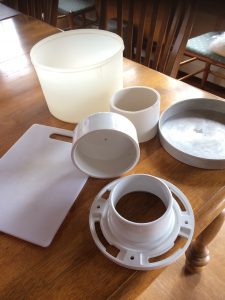
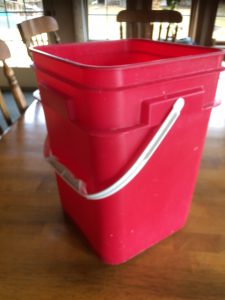
TOOLS:
- Power screw driver
- Jig saw
- Utility knife
- Scissors
- Pencil or pen
2. Using the jig saw, cut one cutting board to the size of a cake pan and the other to the size of the INSIDE bottom of the KLB. (This will be referred to as the “1st KLB” from here on out.)
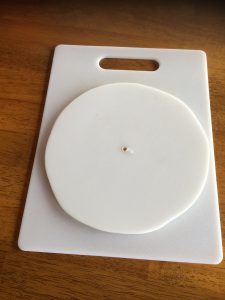
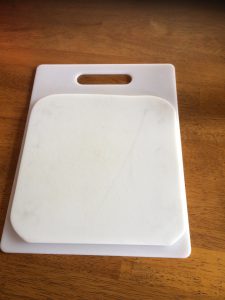
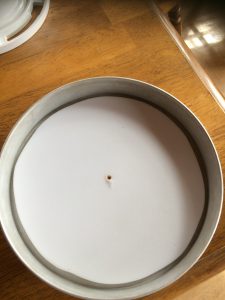
3. Using a utility knife and/or scissors, cut the bottom out of the cylindrical 1 gallon tub, leaving a 1/2″ lip around the edge.
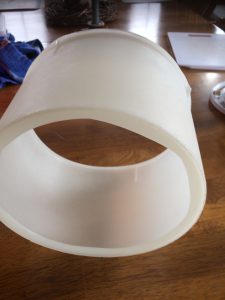
4. Cut the 1/2″ thick board to the size of the INSIDE bottom of the 2nd KLB (use the previously cut cutting board for a template), and place it in the bottom of the bucket.
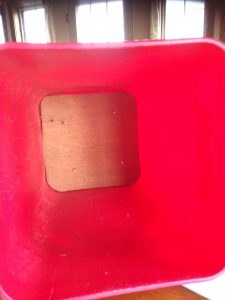
5. You may need a helper for this. Using the (4) wide-headed screws, center and screw the toilet flange to the bottom of the 2nd KLB right through into the fitted piece of wood inside. Screw in tight enough to JUST hold the toilet flange on, but loose enough to be able to easily remove it.
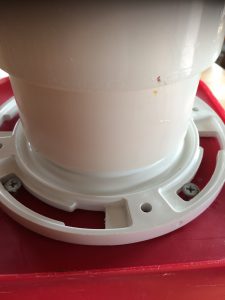
6. Press the 4″ PVC pipe and cap tightly onto the toilet flange. Using the little, non-corrosive screw, secure the round-cut cutting board, centered on the cap.
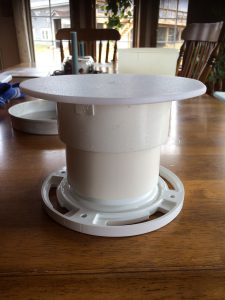
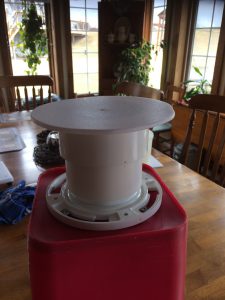
7. Place one of the cake pans, up-side-down into the bottom of the 1st KLB. Put the square-cut cutting board on top of the pan. This will allow whey to collect in the bottom of the 1st KLB, but away from the cheese.
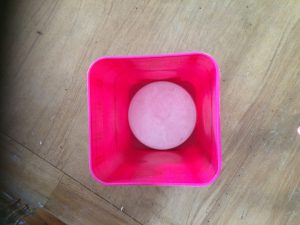
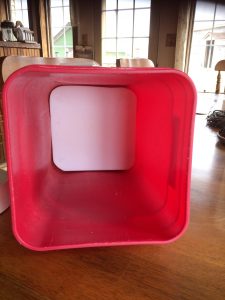
8. Place the cylinder tub (with the cut out bottom) in next.
9. When you make your cheese and are ready to load the curds into the press, line a colander with cheesecloth or Bouffant style hair net. I prefer the hair net since it leaves minimal marks on the cheese and can be thrown out without guilt. I could never get a cheesecloth clean enough to reuse.

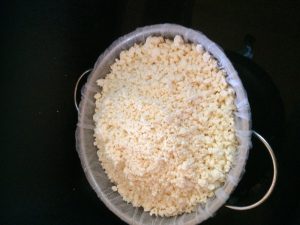
10. Carefully transfer curds and cloth to the cylinder tub inside the 1st KLB.
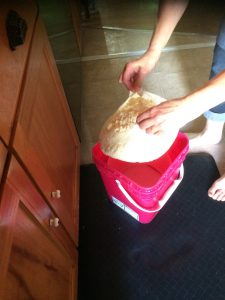
11. Fold the cloth over the curds as neatly as you can, and place the 2nd cake pan (right-side-up) on top of this. Then place the 2nd KLB into this curd-loaded 1st KLB.
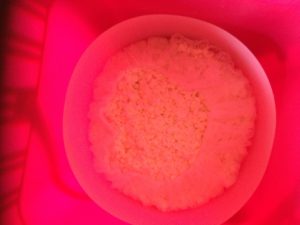
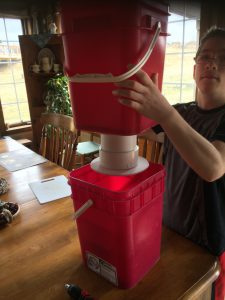
12. Bricks are placed within the 1st KLB as needed according to the recipe.
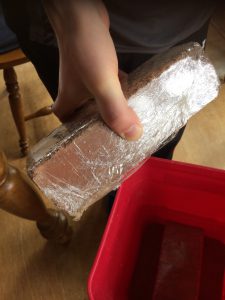
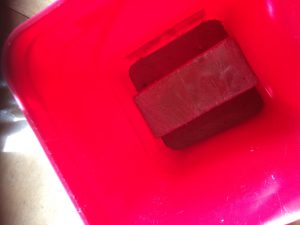
13. Use spoons or sticks to be sure to get a balanced press and beautifully shaped cheese.
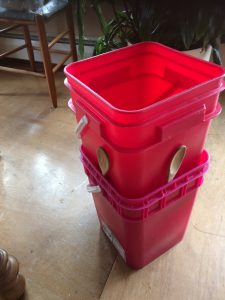
When you redress the cheese, simply lift the 1st KLB with the bricks out of the 2nd and onto a plate placed on the floor.
So there you have it – a Scottish cheese press! Not including the bricks, this could be made for around $10, if you shop at a thrift store, dollar store and a home center. This will enable you to press and not crush your cheese or your wallet.
A good tasting cheese is not over pressed to the point of being dry. It is not stirred roughly so that the curds become tiny hard beads. The curds are gradually heated up to carefully drive out the whey, yet still enable them to retain a spongy texture. Also, the curd mat is cut into little squares to open it up to the whole process of creating a good cheese.
If you think about it, God is a perfect cheese maker!! In 2 Corinthians 4:8-9 we are reminded that “We are pressed on every side, but not crushed; perplexed, but not in despair; persecuted, but not abandoned; struck down, but not destroyed.”
So it appears God does the same process to us as we do to our cheese. He allows just enough pressure to drive out the things that “way” us down, preventing us from running the good race. Yet He does not break our spirit. The storms of life that turn us upside down and inside out, cause us to turn to Him as we see our need for something greater than ourselves. The heat in our lives is turned up gradually to drive off the dross and prove our faith is in Him. The heat is not applied to burn us out and drive us away. Humility is taught, if we’ll allow it, with the careful cutting and pruning by the Father who wants us to bear good fruit.
I will close with this one final thought. Up until the last fifty years, when someone talked about “depression” it generally did not refer to “sadness.” The definition primarily used was this: the action of lowering something or pressing something down; a sunken place or hollow on a surface. There is only one way to be “sorrowful, yet always rejoicing.”* Remember that you are in the hands of a living God, who is molding you, forming you, and yes, even pressing you into His image. So press back – into the heart of the Father.
Verses that inspired this post:
*2 Corinthians 6:10a
“sorrowful, yet always rejoicing…”
2 Corinthians 3:18
“And we all, who with unveiled faces contemplate the Lord’s glory, are being transformed into His image with ever-increasing glory, which comes from the Lord, who is the Spirit.
Psalm 102:23
“In the course of my life He broke my strength; He cut short my days.”
Hebrews 12:29
“for our God is a consuming fire.”
1 Peter 1:7
“These (trials) have come so that your faith – of greater worth than gold, which perishes even though refined by fire- may be proved genuine and may result in praise, glory, and honor when Jesus Christ is revealed.”
Isaiah 1:25b
“I will thoroughly purge away your dross and remove all your impurities.”
Matthew 12:33
“Make a tree good and its fruit will be good, or make a tree bad and its fruit will be bad, for a tree is recognized by its fruit.”
John 15:2
“He cuts off every branch in Me that bears no fruit, while every branch that does bear fruit He prunes so that it will be even more fruitful.”
Hebrews 10:22
“Let us draw near to God with a sincere heart and with the full assurance that faith brings, having our hearts sprinkled to cleanse us from a guilty conscience and having our bodies washed with pure water.”
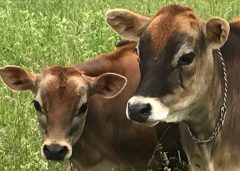
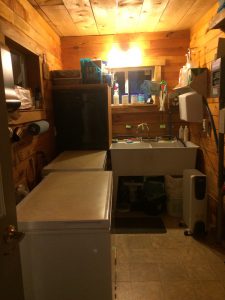
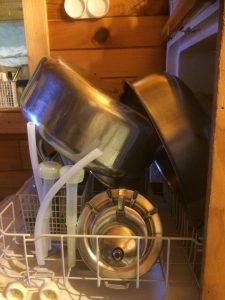
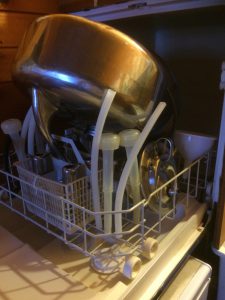
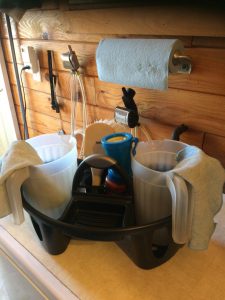
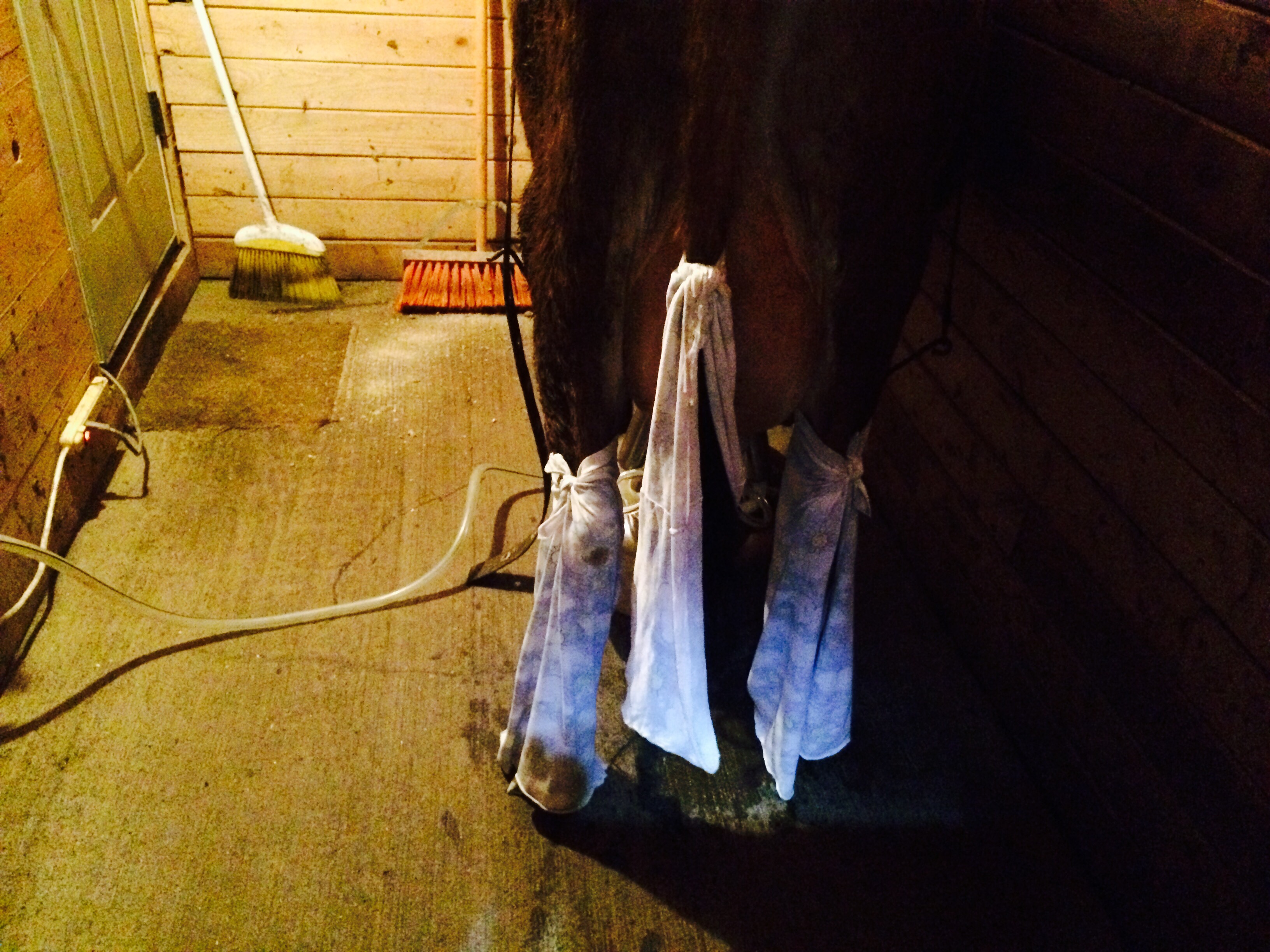
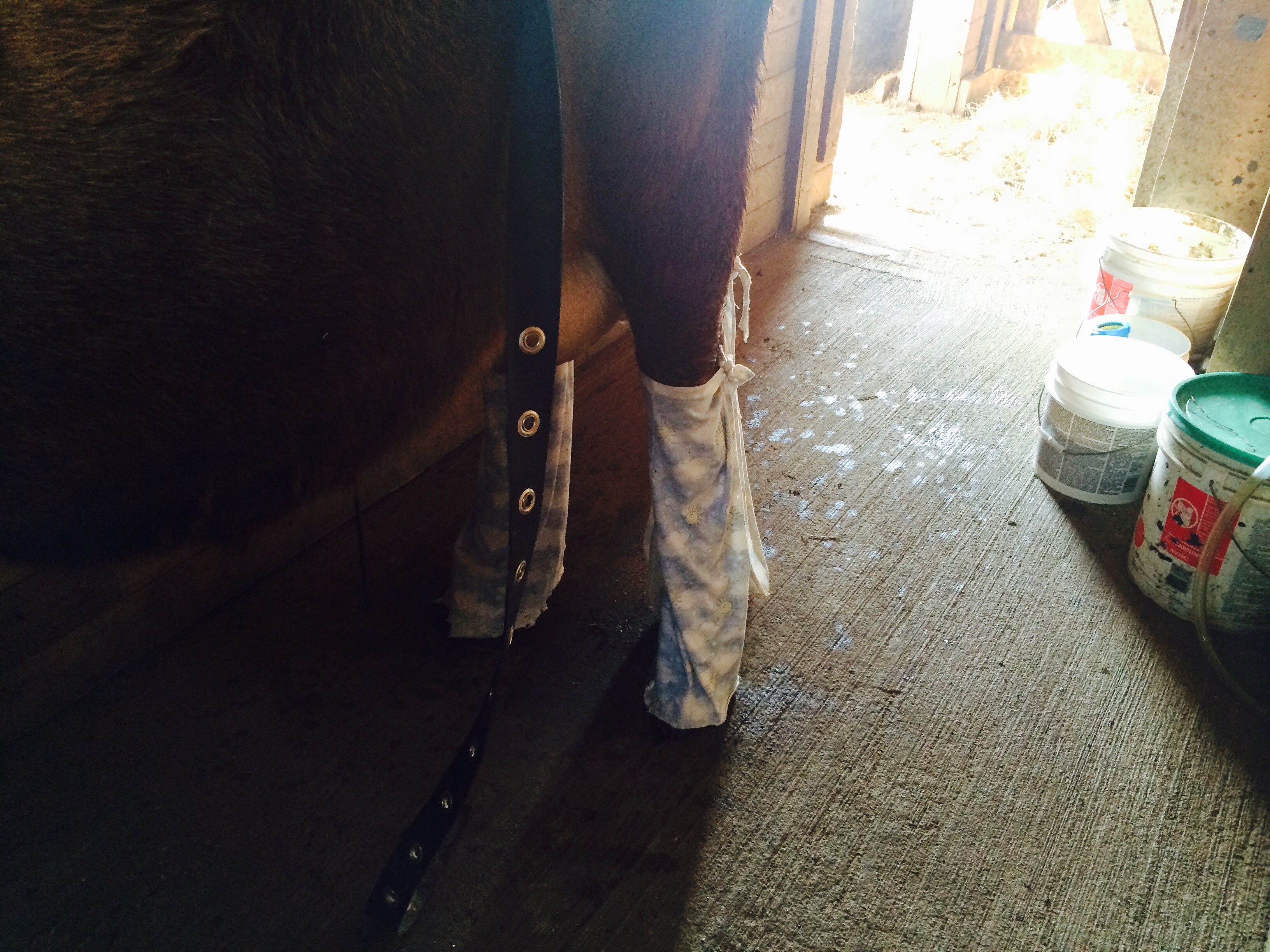 We tie them on so that nothing can possibly be sucked up from them into the milk.
We tie them on so that nothing can possibly be sucked up from them into the milk.